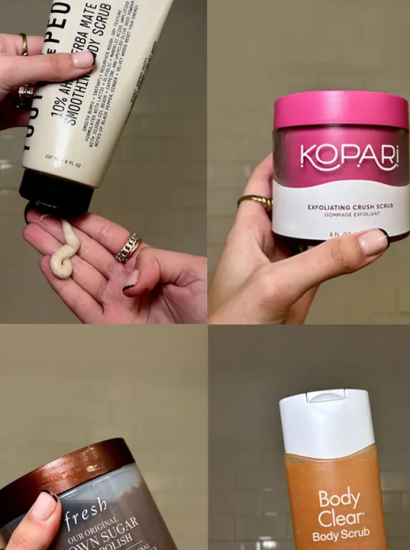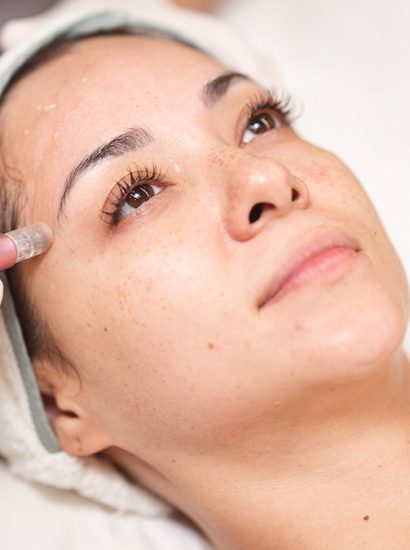Oily skin can be both a blessing and a challenge. While excess oil helps prevent wrinkles and keeps the skin naturally hydrated, it can also lead to clogged pores, acne breakouts, and an unwanted greasy appearance. The secret to balanced, healthy skin is following the best skincare routine for oily skin—one that controls excess sebum without stripping the skin’s natural moisture.
This guide will walk through ten powerful steps to create a skincare regimen that keeps the skin fresh, matte, and blemish-free.
Use a Gentle, Oil-Free Cleanser
The foundation of any skincare routine for oily skin is a good cleanser. Choosing a gentle, foaming cleanser helps remove excess oil and impurities without over-drying the skin.
What to Look For
- Salicylic Acid, which helps unclog pores and prevent breakouts
- Tea Tree Oil, known for its antibacterial properties that fight acne
- Gel or Foam-Based Formulas, which work best for controlling excess oil
A helpful tip is to wash the face twice a day, once in the morning and once before bed. Overwashing can trigger more oil production.
Apply an Alcohol-Free Toner
Toners help remove any leftover dirt and oil while balancing the skin’s pH levels. The right toner can tighten pores, reduce shine, and prepare the skin for the next steps.
Best Ingredients for Oily Skin
- Witch Hazel, a natural astringent that minimizes pores
- Niacinamide, which helps control sebum production
- Green Tea Extract, known for soothing irritation and reducing redness
Applying toner with a cotton pad or gently patting it onto the skin using clean hands can enhance its effectiveness.
Use an Oil-Free, Lightweight Moisturizer
Many people with oily skin skip moisturizer, fearing it will make their skin even greasier. However, hydration is key to maintaining a healthy moisture barrier and preventing the skin from overproducing oil.
Ideal Moisturizer Ingredients
- Hyaluronic Acid, which hydrates without clogging pores
- Aloe Vera, known for its lightweight, soothing properties
- Oil-Free, Gel-Based Formulas that provide hydration without heaviness
Using a non-comedogenic moisturizer ensures the skin stays hydrated without increasing shine.
Apply a Mattifying Sunscreen
Sunscreen is essential, even for oily skin. Many sunscreens feel greasy, but choosing a lightweight, oil-free formula prevents excess shine while offering protection from UV damage.
Recommended Sunscreens for Oily Skin:
- Mineral-based sunscreens with zinc oxide
- Gel or water-based sunscreens
- Mattifying formulas that absorb oil
Using a sunscreen with a matte finish helps keep the skin protected while controlling oil throughout the day.
Exfoliate Twice a Week
Exfoliation removes dead skin cells, preventing clogged pores and breakouts. Over-exfoliating can strip the skin of its natural oils, so limiting this step to twice a week is best.
Best Exfoliating Ingredients
- Salicylic Acid, which penetrates deep into pores
- Glycolic Acid, an effective exfoliant that brightens skin
- Charcoal or Clay-Based Scrubs for absorbing excess oil
Gentle exfoliation helps remove impurities while keeping the skin smooth and refreshed.
Use Clay Masks for Oil Control
Clay masks are an excellent addition to a skincare routine for oily skin. They help absorb excess oil, unclog pores, and reduce shine.
Best Clay Types for Oily Skin
- Bentonite Clay, known for drawing out impurities
- Kaolin Clay, a gentle option for sensitive oily skin
- Charcoal Infused Clay for deep cleansing
Applying a clay mask once or twice a week can help control oil production and minimize breakouts.
Spot Treat Acne with Targeted Ingredients
When breakouts occur, using an effective spot treatment can speed up healing. Applying a small amount directly onto blemishes can reduce redness and inflammation.
Effective Spot Treatment Ingredients
- Benzoyl Peroxide, which kills acne-causing bacteria
- Tea Tree Oil, a natural alternative for fighting acne
- Sulfur, known for absorbing oil and reducing breakouts
Using these treatments sparingly prevents over-drying or irritation.
Avoid Touching the Face
Touching the face transfers dirt, oil, and bacteria, which can lead to clogged pores and breakouts. Being mindful of this habit can prevent unnecessary skin issues.
Helpful Tips
- Clean the phone screen regularly to avoid bacteria transfer
- Keep hands clean to prevent spreading germs
- Use oil-absorbing sheets instead of wiping the face with hands
Being aware of these small habits can make a big difference in skin health.
Follow a Healthy Diet and Hydration Routine
What goes into the body affects the skin. Eating a balanced diet and staying hydrated can help regulate oil production and improve overall skin health.
Foods That Help Control Oily Skin
- Leafy Greens and Vegetables, which provide essential vitamins
- Omega-3 Fatty Acids found in fish and nuts, known for reducing inflammation
- Plenty of Water to flush out toxins and keep the skin hydrated
Avoiding excessive processed foods and sugary snacks can also help reduce breakouts and excess oil.
Conclusion
Managing oily skin requires the right combination of products and habits. By following these ten powerful steps, anyone can achieve a balanced, healthy complexion while keeping excess shine and breakouts under control.
Consistency is key, and adapting this skincare routine to fit individual needs will help maintain clear, glowing skin. With the right approach, oily skin can become manageable and even work to your advantage in the long run.
Would you like additional recommendations on specific skincare products?
FAQs
How often should I wash my face if I have oily skin?
Washing your face twice a day—once in the morning and once before bed—is ideal. Overwashing can strip the skin of its natural oils, causing it to produce even more oil to compensate. If needed, use a gentle cleanser after sweating or exercising.
Is moisturizer necessary for oily skin?
Yes, moisturizer is essential even for oily skin. Skipping moisturizer can lead to dehydration, which may cause the skin to overproduce oil. Choose a lightweight, oil-free, gel-based moisturizer to keep the skin hydrated without making it greasy.
What ingredients should I avoid in skincare products for oily skin?
People with oily skin should avoid heavy oils, alcohol-based products, and thick creams. Ingredients like coconut oil, mineral oil, and petrolatum can clog pores, while alcohol-based toners can strip moisture and trigger excess oil production.
Can oily skin also be dehydrated?
Yes, oily skin can still be dehydrated, especially if you use harsh cleansers or skip moisturizer. Dehydrated skin produces more oil to compensate for moisture loss. Using hydrating ingredients like hyaluronic acid and aloe vera can help maintain a healthy balance.
How can I reduce excess shine throughout the day?
To keep shine under control, use oil-absorbing sheets, apply a mattifying primer, and set your skincare and makeup with oil-free, lightweight powders. Also, using the right products, such as an oil-control moisturizer and sunscreen, can help regulate excess oil production throughout the day.
Also read: White Tshirt Women: 9 Chic Outfit Ideas to Refresh Your Style





